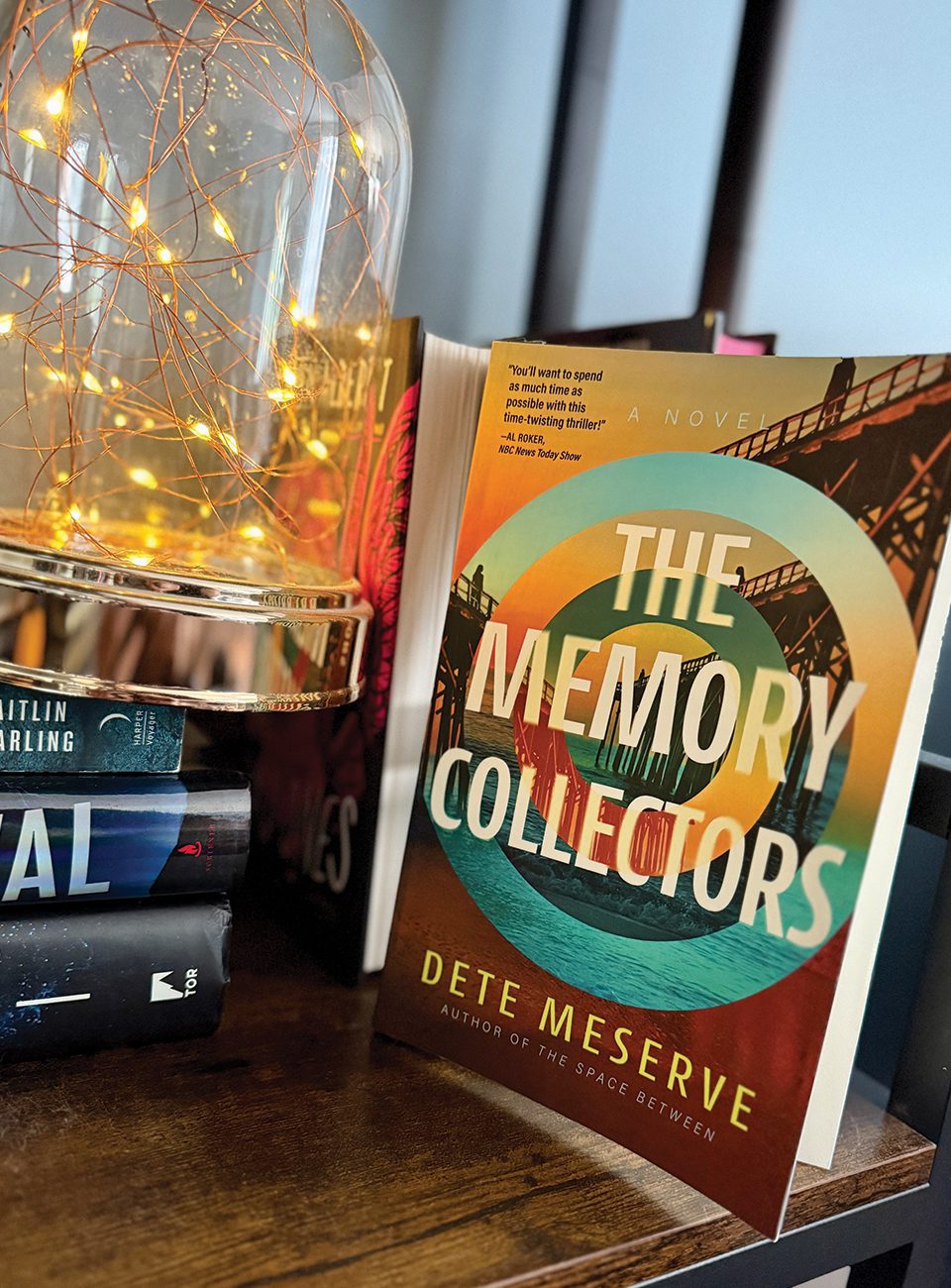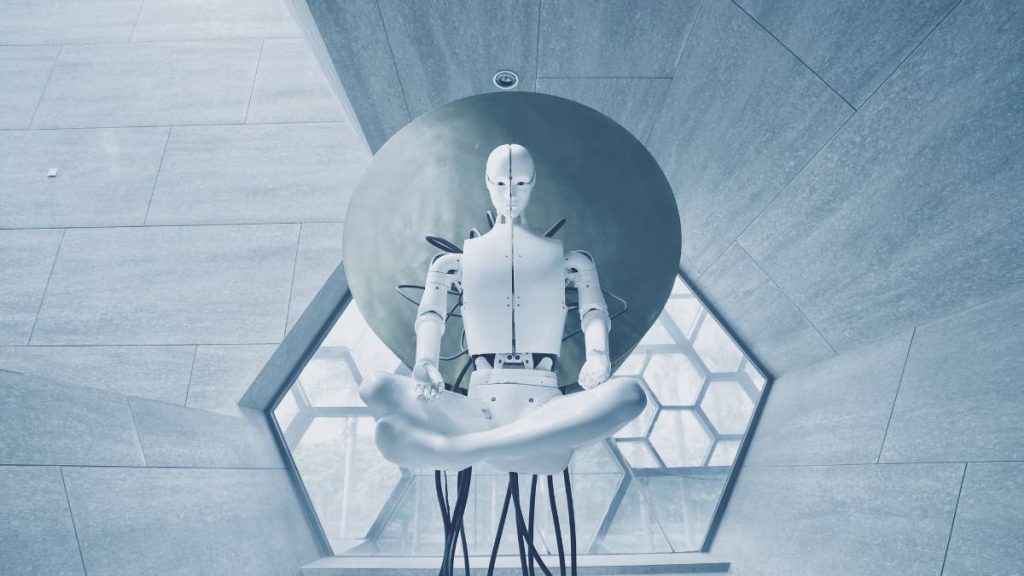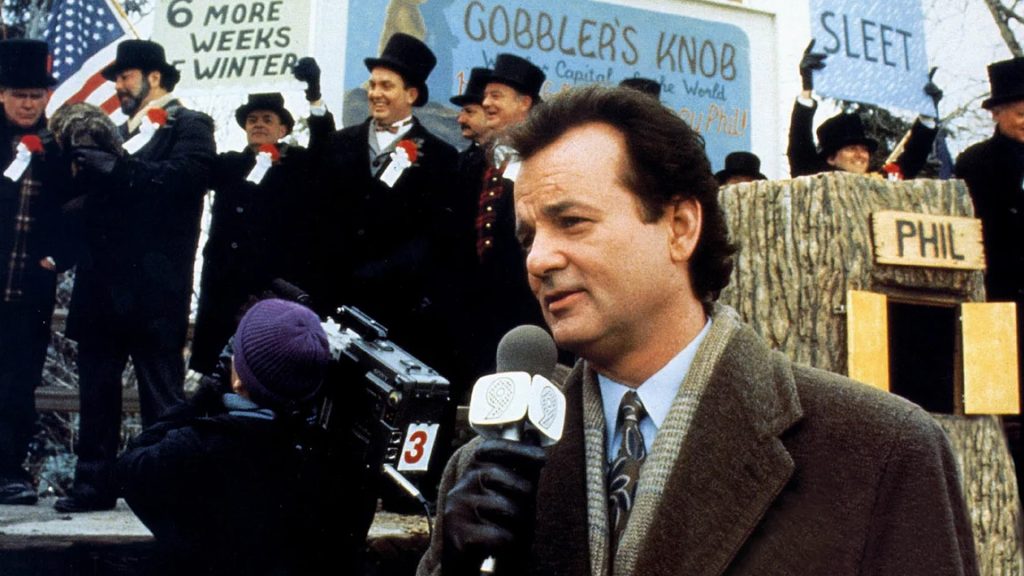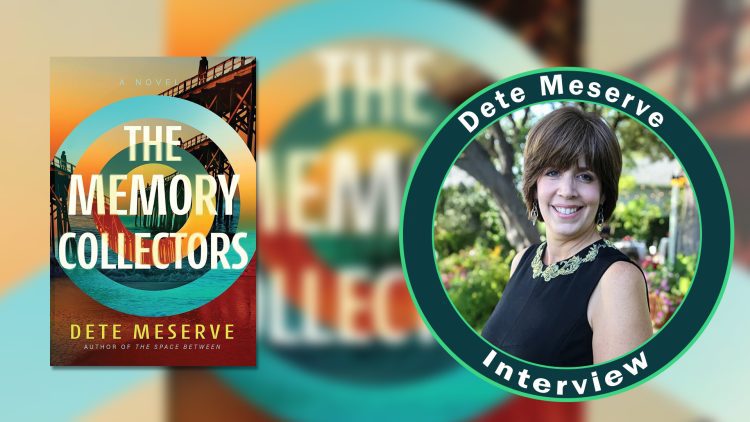After getting and devouring the ARC of The Memory Collectors by Dete Meserve, I just had to ask for a connection with the author to dive deeper into the amazing world that she has created.
Talking to Dete Meserve is like opening a portal into a world where emotion and science fiction collide in the most human way possible. In this interview, we got into the guts of her newest novel, The Memory Collectors, her thoughtful approach to paradox-free time travel, and the emotional journeys that make her story so compelling.
She opened up about how motherhood shaped her characters, why Groundhog Day is peak time-travel cinema, and how physicist Dr. Fabio Costa’s research sparked the story’s structure.
We also got a peek at her upcoming thriller and a time-travel booklist that’s as satisfying as it is surprising. If you’ve ever wondered what time travel could teach you about yourself, not history, but you, you’re in the right place.
Let’s dive in!
Was there one character’s journey that was most personal or emotionally resonant for you while writing?

Each character carried something deeply personal that resonated with me. As a mother of three, Elizabeth’s fierce love for her son Sam mirrored my own feelings for my children. But I found myself worrying about all of the characters, wanting each to discover what was missing from their lives. When I started writing, I honestly had no idea how I would resolve all their profound losses. That uncertainty became the heart of the story’s quest.
As the story unfolded, I realized each character already possessed their own answers but couldn’t see them clearly. The time travel experience served as the key to unlock that hidden knowledge. I also discovered that for them to truly break free, they needed to abandon their isolation and forge meaningful connections with each other.
The Memory Collectors story became less about the mechanics of time travel and more about how our lives and memories can reveal the wisdom we already carry within ourselves, and how transformation requires us to reach beyond our own loss to touch the lives of others.
RelatedI Couldn’t Put It Down: The Memory Collectors Review
For your research, you mentioned consulting with Dr. Fabio Costa. How far did you deviate from his research, if at all?

Dr. Fabio Costa, a physicist at the University of Queensland, collaborated with student Germain Tobar to develop mathematical models demonstrating that “paradox-free” time travel is theoretically possible. Their research reveals a fascinating concept: time travelers possess complete freedom to act as they choose, yet paradoxes simply cannot occur.
If someone traveled back and altered events, the universe would automatically reconfigure itself to maintain logical consistency—not by restricting the traveler’s actions, but by ensuring that events adjust to avoid any inconsistency.
When writing The Memory Collectors, I adhered closely to this framework. Every character travels into their past with full agency to act and choose, yet none can alter the future’s outcome. The timeline remains fixed, immutable. What transforms is not history itself, but the travelers’ understanding of it. They return fundamentally changed by the perspective gained from experiencing their past with new eyes, carrying insights that reshape how they decide to move forward.
Costa’s model offered me the perfect narrative structure: characters could have meaningful, transformative experiences in their past without the story devolving into the typical paradox puzzles that often bog down time travel fiction. The focus shifts from “What if we could change history?” to the more profound question: “What if we could change ourselves by truly understanding our own history?”
Enjoying this article?
Subscribe to our weekly newsletterThis book feels very cinematic. Did your background in film and TV shape how you approached writing it?

My background in film and television definitely shapes how I approach writing. I visualize each scene while putting words on the page, watching how characters move through space, what they discover in each moment, and how they arrive at their decisions.
However, unlike pure cinematic writing, my novels rely heavily on interior monologue to convey the emotion of each character. Film shows us external behavior, but fiction allows me to dive deep into what characters are truly feeling and experiencing beneath the surface. This internal access creates a level of intimacy that’s difficult to achieve in TV and film.
Working in television and film has also taught me the importance of pacing and rhythm. I’ve learned when to slow down and create breathing room for pivotal emotional scenes, allowing readers to fully absorb the weight of what’s happening. On the other hand, during moments of tension and action, I accelerate the pace with shorter, punchier sentences and dialogue.
This dual approach lets me craft scenes that feel visually dynamic and cinematically engaging while maintaining the psychological depth that makes novels uniquely powerful. I hope the visual clarity draws readers in, but the thoughts and feelings keep them emotionally invested.
What’s one piece of time-travel fiction—book, movie, or TV—that you think really gets it right? Or inspired your take?

So many time travel stories focus on going to the past to alter the future. I consume them all, of course, but they often feel like variations on the same theme. One of my favorite films of all time is Groundhog Day, and I absolutely consider it a time travel movie.
What fascinates me is that Phil (played by Bill Murray) never changes February 2nd—the day remains identical each time he relives it. Instead, each loop transforms him. He progresses through distinct stages: confusion, reckless indulgence, cynical manipulation, complete despair, and purposeful growth. Only when he stops trying to exploit his situation and begins using his time constructively does he forge an authentic connection with Rita and discover his best self—someone genuinely worthy of love.
Like The Memory Collectors, the timeline remains untouched. The external world stays exactly the same. But the experience fundamentally changes the person living it. That’s what drew me to this approach—the idea that time travel’s greatest power isn’t in rewriting history, but in rewriting ourselves. When characters experience their past choices and relationships from new perspectives, they see patterns they’ve been blind to and discover truths about themselves that were always there, waiting to be unlocked.
RelatedSci-Fi’s New Wave: Debuts Authors And Books Everyone’s Talking About
What is your next project (if we can know about it)?
I’m finishing up What Hides in the Quiet, the novel I was writing when the idea for The Memory Collectors sparked. It’s a genre-bending thriller that weaves together supernatural legends, scientific mystery, and family secrets in a unique and eerie setting.
With multiple disappearances, unexplained phenomena, and an invisible threat lurking, it’s designed to keep readers guessing—and turning pages—until the final revelation.
About The Memory Collectors

The Memory Collectors isn’t your typical time-travel adventure. Sure, the characters journey into their pasts, but the goal isn’t to change what happened—it’s to understand it. Meserve crafts a story where the real transformation happens inside the characters themselves.
Through emotionally grounded storytelling and a framework inspired by real-world physics, the novel becomes a meditation on memory, loss, connection, and the quiet power of perspective. It’s a story that sticks with you, not because of its twists (though it has those too), but because of the way it asks, What if the key to moving forward was hidden in the past we never fully understood?















